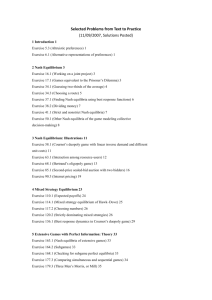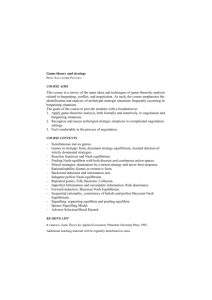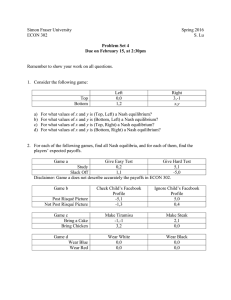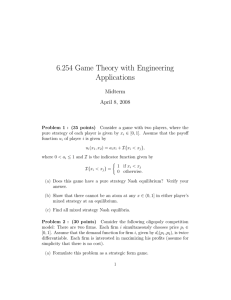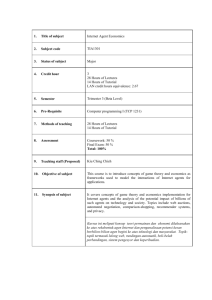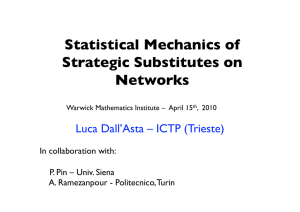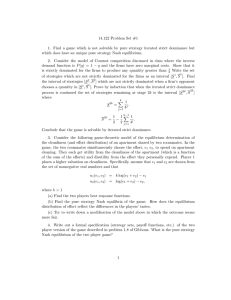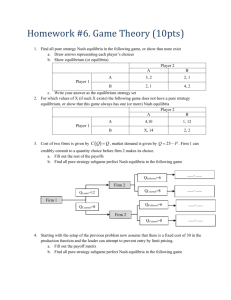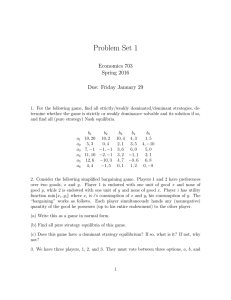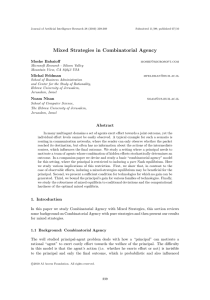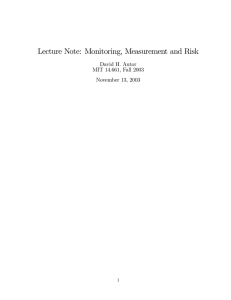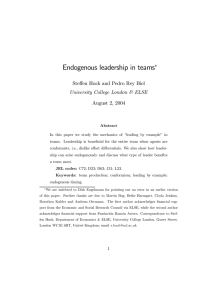1. Find all of the Nash equilibria of the following... 2.
advertisement
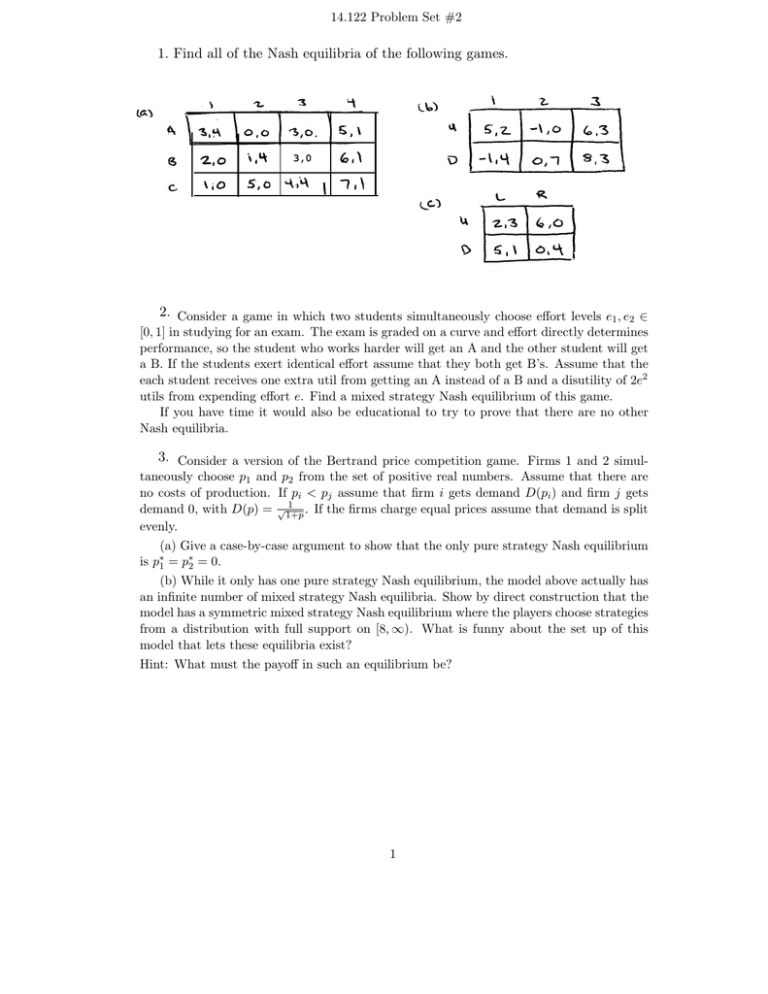
14.122 Problem Set #2 1. Find all of the Nash equilibria of the following games. 3,0 2. Consider a game in which two students simultaneously choose effort levels e1 , e2 ∈ [0, 1] in studying for an exam. The exam is graded on a curve and effort directly determines performance, so the student who works harder will get an A and the other student will get a B. If the students exert identical effort assume that they both get B’s. Assume that the each student receives one extra util from getting an A instead of a B and a disutility of 2e2 utils from expending effort e. Find a mixed strategy Nash equilibrium of this game. If you have time it would also be educational to try to prove that there are no other Nash equilibria. 3. Consider a version of the Bertrand price competition game. Firms 1 and 2 simultaneously choose p1 and p2 from the set of positive real numbers. Assume that there are no costs of production. If pi < pj assume that firm i gets demand D(pi ) and firm j gets 1 demand 0, with D(p) = √1+p . If the firms charge equal prices assume that demand is split evenly. (a) Give a case-by-case argument to show that the only pure strategy Nash equilibrium is p∗1 = p∗2 = 0. (b) While it only has one pure strategy Nash equilibrium, the model above actually has an infinite number of mixed strategy Nash equilibria. Show by direct construction that the model has a symmetric mixed strategy Nash equilibrium where the players choose strategies from a distribution with full support on [8, ∞). What is funny about the set up of this model that lets these equilibria exist? Hint: What must the payoff in such an equilibrium be? 1 4. When I give an exam in 14.122, my utility is decreasing in the effort which it takes me to make up new questions and increasing in the amount of time which students spend learning the material the course covers. I have two options to choose from: to make up new questions or to reuse questions from old exams. In preparing for the exam students also have two choices: to spend their time available for studying trying to learn the course material, or to try to find out what questions were asked in past years and memorize the answers. While I don’t necessarily have these sentiments in real life, assume for the purposes of this question that having students only memorize old questions is sufficiently annoying to me that I derive utility from having them fail an exam containing new questions if this is all they’ve done. Assume that students care mostly about their score on the exam (but perhaps also about learning) so that if I ask new questions students are best off learning the material, while if I ask old questions they are best off memorizing old answers. Write down what you would think are reasonable utility functions for a typical student and for me (consistent with the description of the game above). Find the Nash equilibrium of the game and comment on how the probability with which I put old questions on the exam is affected by the parameters of the utility function.
